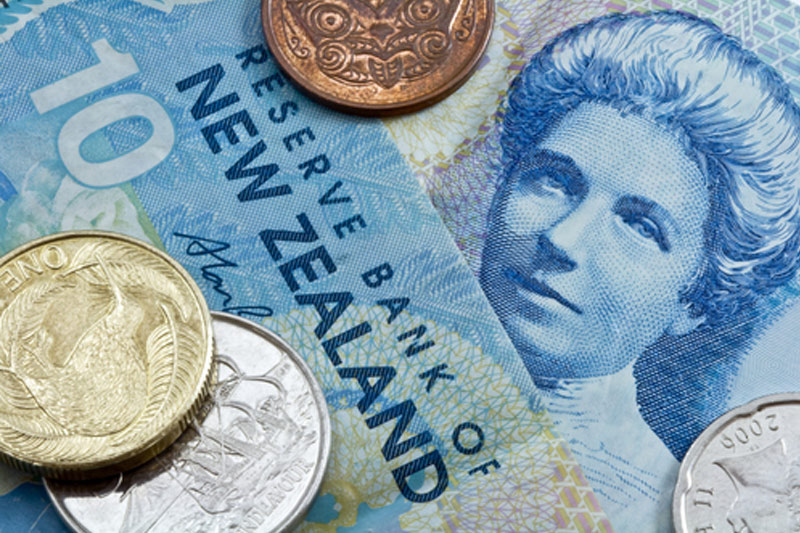Investing.com - The New Zealand dollar slid to fresh five-year lows against its U.S. counterpart on Tuesday, after the release of downbeat business confidence data from New Zealand and as the results of Greece's referendum on Sunday continued to weigh.
NZD/USD hit 0.6659 during late Asian trade, the pair's lowest since June 2010; the pair subsequently consolidated at 0.6656, declining 0.43%.
The pair was likely to find support at 0.6568 and resistance at 0.6715, Monday's high.
The New Zealand Institute of Economic Research reported on Tuesday that its business confidence index fell to 5 in the second quarter from a reading of 23 in the three months to March.
Meanwhile, sentiment remained under pressure after Greek voters overwhelmingly rejected conditions of a rescue package from creditors on Sunday, adding to doubts over the country's future in the euro zone and deepened a standoff with its lenders.
European officials have indicated that they will only continue to finance Greece in return for far-reaching economic reforms.
Greek Prime Minister Alexis Tsipras welcomed the outcome of the vote and said Athens was returning to negotiations with the express goal of reopening banks, which have been shut for over a week after capital controls were imposed.
International Monetary Fund Managing Director Christine Lagarde warned Athens on Monday that policy prohibits lending to countries that have missed payments, although it can offer advice of the staff.
Without more emergency funding from the European Central Bank, Greece's banks could run out of cash within days.
The kiwi was lower against the Australian dollar, with AUD/NZD rising 0.34% to 1.1252.
Also Tuesday, the Reserve Bank of Australia held its benchmark interest rate at a record-low 2.00%, in a widely expected move.
Commenting on the decision, RBA Governor Glenn Stevens said that although the economy is growing at a below average pace, one good sign is that there are higher rates of borrowing.
Stevens added that while the Australian dollar had fallen against the US dollar, it has not dropped as much against other currencies.
